RE-SOURCING COMMONS by Social Design Vienna challenges non-sustainable standards in urban design routines. It uncovers hidden potentials of material circularity considering social dimensions using the example of the participatory redesign of a Viennese public park. The project demonstrates internationally transferable approaches to narrow the circularity gap through integrating previously overlooked (im)material resources of the city into a modular, repairable and (socially) sustainable system.
NEB Prizes 2022: All Applications
Filter by
Applications (1048)
Showing results 671 to 680
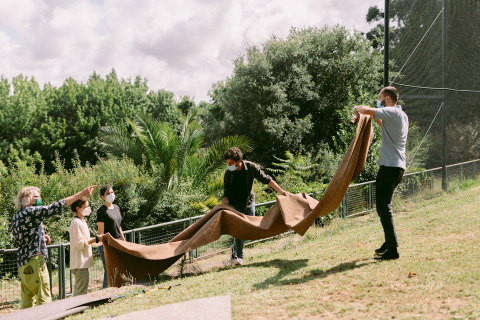
Porto Design Biennale is a global gathering aimed to reflect on the role of design in the construction of more satisfying and sustainable ways of life. “Alter-Realities: Designing the Present” was the theme of the 2021 edition. During two months, designers, curators, decision makers, students and citizens got together in the cities of Porto and Matosinhos to imagine alternative spaces, different ways of production, new livelihoods and reflect on how we can materialize communities of difference.
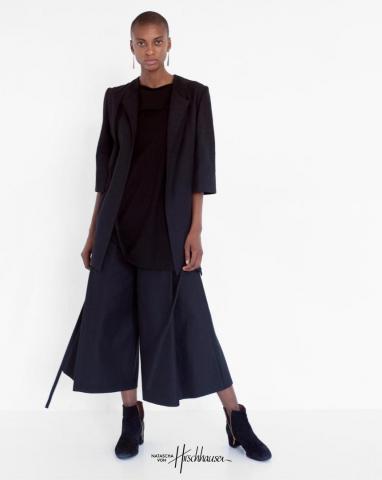
The zero-waste pantsuit by Natascha von Hirschhausen stands for easy, elegant designer fashion produced in a radically sustainable and innovative manner. Handmade locally and on-demand this zero-waste evolution provides a 99% of material efficiency in the cutting process, so that the leftovers of less than 1% are small enough to be presented in a little earring. All materials are audited along the entire value chain for high ecological and social standards - for a #WasteLessFuture.
In two weeks, 17 students from the Chair of Urban Design build an experimental wooden structure - a solar parklet. It fits exactly on a single parking spot. The building material is recycled wood, the energy supply is self-sufficient. The project is called "10 m2 City" and creates the first piece of campus on a desolate parking lot as a qualitative meeting space, a place for learning and working.
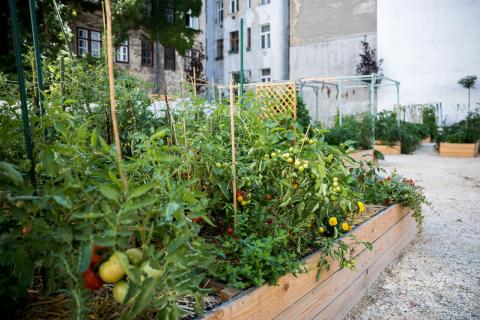
In order to tackle the climate crisis, the greening of the district is one of the top priorities of Budapest Metropolitan Area 6th district Terézváros Municipality. Especially during the pandemia the community garden has been the key element of our sustainability projects. Although community gardens have become increasingly popular in Budapest recently, in historic urban settings it is difficult to find a place for such initiatives, as the number of empty plots is extremely limited.
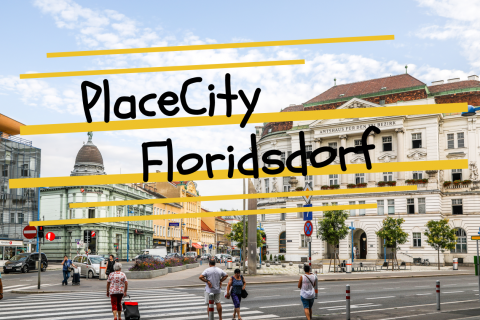
“PlaceCity Floridsdorf” tested innovative co-design methods and tools of inclusive, participatory placemaking through the initiative of the local community in the context of urban development and centre activation in Vienna. The aim was to develop a common vision to vitalize the urban space and make it useful for the local population with hands-on implementation strategies that remain active even after the finalisation of the project.
The Contemporary Association of Arts and Crafts is a non-profit association which promotes the education of the future craftsmen and preserves the most valuable dimensions associated to traditional and contemporary crafts in Spain, such as its identitary, cultural, artistic and historical dimensions, as well as its sustainable, tourist and economic values, pursuing crafts innovation through design and digitalization, and Spanish workshops internationalization through our e-commerce CASA ALIA.
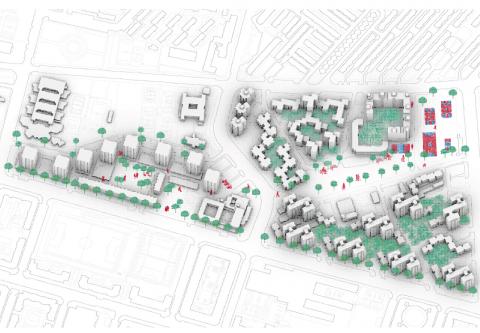
The Urban Resilience Classroom is a didactical program on urban regeneration in which students are actors for change in the city of Madrid. The students of the Grade of Architecture in ETSAM learn and work to provide evidence to the Madrid Municipality on the need and the benefits of addressing the situation of the vulnerable neighborhoods through holistic urban regeneration strategies. They do this interacting with the social tissue of the area and in a transdisciplinary learning framework.
A framework for designing, sourcing and constructing small-scale, buildings using principles of user participation, the circular economy and design for disassembly.
Our ideas are communicated by means of an interactive pavilion and carbon configurator app. This Irish-Estonian trans-disciplinary collaboration is part of a travelling exhibition entitled WoodWorks, appearing live and online throughout 2022.
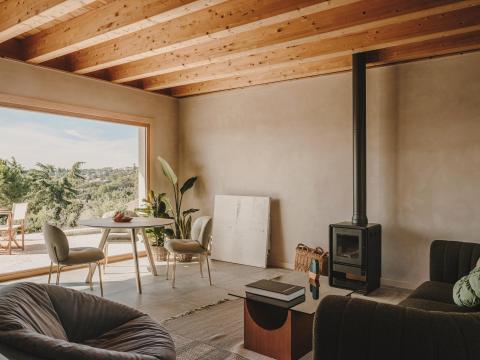
Passive house on the outskirts of Madrid. To solve the programmatic needs of the clients the project is solved in two floors with independent access. Both floors face south and also open onto a bioclimatic central patio surrounded by practicable glass enclosures to regulate temperature in winter and summer. The construction system combines a semi-buried ground floor with high thermal inertia and a first floor of prefabricated wood, always following strict energy efficiency and health criteria.
